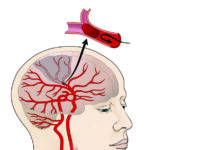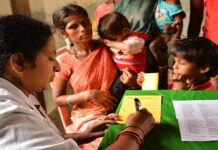Abstract
As on December 2021, COVID vaccination for children is yet to commence in India, a country that has been a global leader in vaccinating the adult population. Two indigenous vaccines have already been approved for children 12 years and above by the Drug Controller General of India (DCGI), with vaccination set to commence for children aged 15 years and above in January 2022. Children are being considered as low risk and low priority for vaccination, as in them, COVID is commonly mild, and complications, rare. However, the impact of the evolving SARS-CoV-2 mutants on children cannot be fully predicted, and some children have comorbidities and immune deficiencies putting them at higher risk. Moreover, children not being vaccinated has contributed significantly to parental anxiety and reluctance in sending them to school, and also the schools continuing hybrid teaching and not being able to start physical and interactive activities that can improve children’s holistic health, wellbeing and development. As globally across several countries, children are now being vaccinated, this is being expected from India too. Vaccination of children may not only enhance protection against severe COVID and unpredictable variants, but can help the children return to a more wholesome school life and childhood.
Keywords: vaccination, COVID, children, school, development
Introduction
We are now at the brink of entering the third year of the COVID pandemic. India began vaccination against COVID in January 2021for adults, starting with healthcare and frontline workers, elderly, and those with comorbidities, and later extended it in May 2021 to all adults (18 years or more).[1] However, the 2nd pandemic wave struck in March-April 2021, and took a significant mortality toll that also included many young unvaccinated healthy adults.[2]
With regards to the adult population, India has administered more than 1.3 billion vaccine doses. [1] However, almost one year after the commencement of COVID vaccination in India, as on December 2021, the vaccination of children has not begun.
Global Scenario
Globally the Pfizer-BioNTech COVID-19 vaccine is approved by USFDA for children 5 years and older.[3] Sinopharm and Sinovac vaccines are now approved by China and some other countries for children 3 years and older, while Moderna’s vaccine has been approved for 12 years and above by EMA. Vaccination for children aged 12 years or more, and in some countries for those aged 5 years (even 3 years) and more, with the appropriate approved vaccines, has started in full swing globally across almost 100 countries. These include the USA, most European countries, UK, Australia, Middle Eastern countries, some African and South American countries, and several countries in Asia.[4]
Indian Scenario
In India, in August 2021, the Drug Controller General of India (DCGI) approved the Zydus Cadila COVID-vaccine – ZyCoV-D for 12 years and above.[5] However, vaccination has not begun with this vaccine as on December 2021.
In October 2021, the Subject Expert Committee (SEC) had recommended the approval of Bharat Biotech’s Covaxin for children between 2 and 18 years.[6] The DCGI has given the final approval for this vaccine in December 2021, with vaccination for those 15 years and above set to commence in January 2022.[6]
Both ZyCoV-D and Covaxin were given approval by the subject expert committees after the review of the efficacy and safety data from pediatric phase II and III trial interim results.[7] Covaxin is a killed whole virus vaccine, and children have already undergone immunization with other vaccines with this technology before.
As of now the reason available in the public domain and as recommended by the National Technical Advisory Group on Immunization (NTAGI), for not commencing pediatric vaccination in India is that children constitute a low-risk population for COVID and that symptoms seem to be mild in them, therefore they are not a priority group for urgent vaccination as of now.[8] The priority is to complete double doses for all adults with contemplation of booster doses for high-risk adult groups. There are also challenges in ramping up production, administrative and technical issues, and want of more efficacy and safety data in children, as being additional reasons for delaying commencement of pediatric vaccination in India.
An administrative decision considered practical and wise by most is to open schools in India without waiting for children to be vaccinated. Children have suffered an immense impact on their physical and mental health, holistic wellbeing and education, social interaction, and growth and development, by being confined to online school, or in some sections a lack of access to any education. It is a significant uphill task to vaccinate more than quarter-billion eligible children of India and that requires resources, production capacity, and planning that will take time, which is not worthy of losing by keeping schools closed any further.
Reasons for Vaccinating Children
The advantages of COVID vaccination for children in India are summarized below:
• Children constitute a low-risk group for COVID complications, hospitalization and mortality, and mostly display mild symptoms. However, that does not mean that there is no risk.[9] Some children have suffered severe symptoms, and even hospitalization. Multi-system inflammatory syndrome in children (MIS-C), is a recognized, serious and often delayed complication of COVID.[10] Children who had mild COVID can also suffer impacts of long COVID.
• There are many children with immunocompromised conditions and comorbidities who can have more severe COVID and therefore deserve high priority and urgency for vaccination.[11] These include children with heart or respiratory conditions, organ transplants, kidney ailments like nephrotic syndrome, corticosteroid therapy or cancer chemotherapy, childhood obesity, diabetes etc.
• Children can transmit the infection to high-risk or elderly adults in the household who were vaccinated almost 8-10 months ago.[12] Therefore vaccinating children is important for overall family health and reducing community transmission.
• Even though the administration has ordered the opening of schools, many parents are reluctant to send their children to school as they are not yet vaccinated and are hoping that vaccination for children will be starting soon.[13] This apprehension has only increased due to the tremendous talk in the media of cases of the recent Omicron variant increasing in the country.[14]
• Schools are also being extremely cautious due to the children not being vaccinated yet. Signed parental consent is mandatory, and since some parents are apprehensive to send their children, attendance in schools is unsteady. Also, many schools are calling children in groups, and not all from a class on the same day so that distancing can be maintained in the classroom. For both these reasons, schools are forced to conduct hybrid (online-offline) classes that are not as effective as pure online classes for those children attending from home.[15] This is impacting learning and academics.
• For the children coming to school, they are not allowed to freely move around and interact with other children and have to keep distancing at all times. Co-curricular, sports/games and interactive social and educational activities, have not begun, as children are not vaccinated. Many schools have not resumed their transport as well as meal service for fear of the spread of infection. This is creating practical difficulties for parents in sending their children to school. So many children continue with or go back to online school from home for these reasons. It is already established that lack of adequate social interaction, physical activity (sports/games) and personality development co-curricular activities, and living in a virtual gadget dominated world throughout the day has impacted children’s well-being, health and development significantly.[16]
• Most schools that have opened have done so initially for the senior classes. Therefore, the children in junior and pre-primary classes are largely continuing with the online mode. Regression of social, motor and language skills are a big concern in such children.[17] Many children in rural areas without developed internet facilities, and available smart phones/laptops are being left out of education altogether. The administration has now allowed schools to reopen even for junior classes, however, it is very challenging for schools to impose strict COVID protocols on the younger children. So parental reluctance for sending younger children to school is even higher. Schools in low socioeconomic or rural sections are not equipped with stringent sanitation and social distancing measures for children, and can also not conduct hybrid classes.[18]
• Children are subjected repeatedly to RT-PCR tests as they are not vaccinated. While in most Indian states double vaccinated people do not need RTPCR for entry, but if travelling as a family, children over 5 years have to undertake the RT-PCR, sometimes 2-3 times in a short interval. Some schools after reopening are also conducting/asking for frequent RT-PCR tests, that is causing severe inconvenience to the children and parents. International travel as a family is also now posing challenges as most countries are vaccinating children, and completion of COVID vaccination is a requirement for travel to many of the countries.[19]
• In the first wave of the pandemic in 2020, we saw the elderly and people with comorbidities suffer more and the scientific impression was that normal healthy younger adults rarely get severe disease. However, the mutated SARS-CoV-2 variants and the subsequent 2nd wave in 2021, saw several of the unvaccinated young healthy adults get hospitalized and even lose their life. Even though the current variant Omicron seems to be causing mild disease without mortality or hospitalization, it is a variant of concern (VOC) and it is too early to predict its course, and very little data to understand all its features is available.[20] There is also no scientific or medical ‘guarantee’ that a 3rd or subsequent wave, or any future COVID variant will not impact children significantly. Therefore, preventive steps are always better and it is imperative to vaccinate children timely.
• Vaccination has globally proven to be the most effective way of preventing severe COVID, hospitalization and death. Since in most countries, children are now being vaccinated, and their health, education and development is being given priority, this would be the way ahead for India too, and is being expected and awaited by apprehensive parents and schools. Parents in India need to be given clarity and reassurance on when vaccination will begin for their children, and meanwhile not refrain from sending children to school. The schools also need clarity and uniformity, on whether they can resume normal physical classroom teaching mode with all students or how long to continue hybrid mode, and also if they can start sports, co-curricular, and interactive social-education activities, and other essential services without waiting for children to be vaccinated.
Conclusion
India has shown tremendous leadership in vaccination and has been a global example in vaccinating its adult population. All the more that we set such an example for our children as well. Commencing vaccination for children from 2022, starting with those 15 years and above, is the first and needed step in this direction. There is data and approval for 2 indigenous COVID vaccines for children.
COVID vaccination for children confers many important benefits. It can reduce the risk of serious or severe COVID and confer some protection from unpredictable current and future COVID virus variants. Secondly, it allays parental anxiety and will encourage more children to attend a physical school. Thirdly, it can also impart the required conviction and confidence to the schools and administration to open sports, games and play, as well as interactive, social and co-curricular activities, along with school transport and meal facility for children. All this will contribute to the children’s physical, mental, social and emotional health and development, and bring back their normal healthy childhood. Vaccination can reduce the need for extra RT-PCRs and travel/quarantine restrictions for children. Children being immunized can also cut community transmission of COVID.
As of now, children have not been vaccinated as they have been considered low risk. But at the same time because of COVID risk, children are being denied normal and wholesome school life with physical and peer interactive activities that are so important for their health, well-being and development. Thus, children are being penalized from both sides, which is not only unfair to the children but also to the future of our country. Vaccination of children should now be made one of the national priorities, with gearing up of resources and ramping up production for successful pediatric vaccination drives in 2022.
References:
1. Times of India [internet]. A billion COVID vaccine doses: India’s landmark achievement in 10 charts. October 21, 2021. [cited Dec 12, 2021]. Available from: https://timesofindia.indiatimes.com/india/in-10-charts-indias-road-to-a-billion-covid-vaccine-doses/articleshow/87179358.cms
2. Times of India [internet]. Young people with no comorbidities at risk in 2nd wave. May 22, 2021. [cited Dec 12, 2021]. Available from:https://timesofindia.indiatimes.com/india/young-people-with-no-comorbidities-at-risk-in-2nd-wave/articleshow/82849169.cms
3. FDA.Gov [internet]. FDA Authorizes Pfizer-BioNTech COVID-19 Vaccine for Emergency Use in Children 5 through 11 Years of Age. Oct 29, 2021. [cited Dec 12, 2021]. Available from: https://www.fda.gov/news-events/press-announcements/fda-authorizes-pfizer-biontech-covid-19-vaccine-emergency-use-children-5-through-11-years-age
4. Reuters [internet]. Factbox: Countries vaccinating children against COVID-19. Dec 2, 2021 [cited Dec 12, 2021]. Available from:https://www.reuters.com/business/healthcare-pharmaceuticals/countries-vaccinating-children-against-covid-19-2021-06-29/
5. PIB.gov [internet]. Press release: DBT-BIRAC supported ZyCoV-D developed by Zydus Cadila Receives Emergency Use Authorization. Aug 20, 2021. [cited Dec 12, 2021]. Available from:https://www.pib.gov.in/PressReleasePage.aspx?PRID=1747669
6. Hindustan Times [internet]. DCGI approves for emergency use for age group between 12 and 18 years. Dec 25, 2021. [cited Dec 25, 2021]. Available from: https://www.hindustantimes.com/india-news/dcgi-approves-covaxin-for-emergency-use-in-age-group-between-12-and-18-years-101640450006626.html
7. Momin T, Kansagra K, Patel H, Sharma A, Sharma B, Patel J, et al. Safety and Immunogenicity of a DNA SARS-CoV-2 vaccine (ZyCoV-D): Results of an open-label, non-randomized phase I part of phase I/II clinical study by intradermal route in healthy subjects in India. E Clinical Medicine by Lancet, August 2021;38:101020.
8. India Today [internet]. No need for COVID-19 vaccine for children at the moment: NTAGI. Dec 21, 2021. [cited Dec 22, 2021]. Available from: https://www.indiatoday.in/coronavirus-outbreak/vaccine-updates/story/covid-19-vaccine-for-children-not-a-priority-ntagi-centre-1890416-2021-12-21
9. Zimmermann P, Pittet L, Finn A, Pollard A, Curtis N. Should children be vaccinated against COVID-19? Arch Dis Child 2021;0:1–8.
10. Hoste L, Van Paemel R, Haerynck F. Multisystem inflammatory syndrome in children related to COVID-19: a systematic review. Eur J Pediatr. 2021;180(7):2019-2034.
11. Tsankov BK, Allaire JM, Irvine MA, Lopez AA, Sauvé LJ, Vallance BA, Jacobson K. Severe COVID-19 Infection and Pediatric Comorbidities: A Systematic Review and Meta-Analysis. Int J Infect Dis. 2021;103:246-256.
12. World Health Organization [internet]. Interim statement on COVID-19 vaccination for children and adolescents. Nov 24, 2021. [cited Dec 13, 2021]. Available from: https://www.who.int/news/item/24-11-2021-interim-statement-on-covid-19-vaccination-for-children-and-adolescents
13. Times of India [internet]. Majority parents not willing to send children to school. June 23, 2021. [cited Dec 13, 2021]. Available from: https://timesofindia.indiatimes.com/india/majority-parents-not-ready-to-send-kids-to-school/articleshow/83775807.cms
14. Hindustan Times [internet]. Amid scare of Omicron is it safe to send children to school? Dec 8, 2021. [cited Dec 13, 2021]. Available from https://www.hindustantimes.com/lifestyle/health/amid-omicron-scare-is-it-safe-to-send-kids-to-schools-a-doctor-answers-101638972430910.html
15. Times of India [internet]. Hybrid education mode not working for online students. Nov 25, 2021. [cited Dec 13, 2021]. Available from: https://timesofindia.indiatimes.com/city/mumbai/mumbai-hybrid-edu-mode-not-working-for-online-students/articleshow/87898237.cms
16. Araújo LA, Veloso CF, Souza MC, Azevedo JMC, Tarro G. The potential impact of the COVID-19 pandemic on child growth and development: a systematic review. J Pediatr (Rio J). 2021;97(4):369-377.
17. UNICEF [internet]. Is my child regressing due to the COVID-19 pandemic? March 22, 2021. [cited Dec 13, 2021]. Available from: https://www.unicef.org/coronavirus/regression-and-covid
18. South Asia Disasters [internet]. The Pandemic and Reopening Schools. October 2021; 196:1-28. [cited Dec 13, 2021]. Available from: https://reliefweb.int/sites/reliefweb.int/files/resources/Snet%20196.%20The%20Pandemic%20and%20Reopening%20Schools.pdf
19. Times of India [internet]. No vaccine for under 18 major hurdle to international travel. July 7, 2021. [cited Dec 13, 2021]. Available from https://timesofindia.indiatimes.com/city/mumbai/no-vax-for-under-18-major-intl-travel-hurdle/articleshow/84182698.cms
20. World Health Organization [internet]. Update on Omicron. Nov 28, 2021. [cited Dec 13, 2021]. Available from: https://www.who.int/news/item/28-11-2021-update-on-omicron.

























